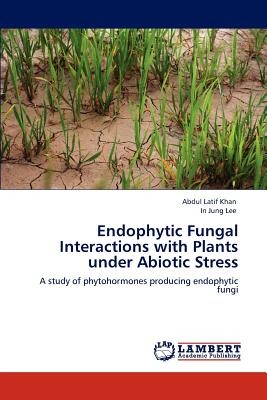
- We will send in 10–14 business days.
- Author: Abdul Latif Khan
- Publisher: LAP Lambert Academic Publishing
- ISBN-10: 3847307703
- ISBN-13: 9783847307709
- Format: 15.2 x 22.9 x 1 cm, minkšti viršeliai
- Language: English
- SAVE -10% with code: EXTRA
Endophytic Fungal Interactions with Plants under Abiotic Stress (e-book) (used book) | bookbook.eu
Reviews
Description
Salinity and drought are the two most common abiotic stress conditions which have devastated growth and yield of crop plants. Though, plants bestowed with the capability to respond to abiotic stress via signal transduction pathways by adjusting their metabolism. A defensive strategy of plants against such stressful events encompasses a cascade of signals ranging from primary to secondary responses. In extreme environment, fungal symbioses with crops can influence various physiological adaptation and improve plant growth. Thus, reducing the adverse effects of stress. Among fungi, endophytic fungi are the fungal symbionts associated with plants, lives inside tissues or roots and can enhance plant growth during stress conditions. Such association in roots can change key features of plant physiology and mediate abiotic stress. Though, endophytes are novel source of biologically active metabolites but there are few reports elucidating the effects of plant growth regulator specially phytohormones producing endophytic fungi. The present work shed light on various overlooked aspects of these endophytes.
EXTRA 10 % discount with code: EXTRA
The promotion ends in 22d.03:52:43
The discount code is valid when purchasing from 10 €. Discounts do not stack.
- Author: Abdul Latif Khan
- Publisher: LAP Lambert Academic Publishing
- ISBN-10: 3847307703
- ISBN-13: 9783847307709
- Format: 15.2 x 22.9 x 1 cm, minkšti viršeliai
- Language: English English
Salinity and drought are the two most common abiotic stress conditions which have devastated growth and yield of crop plants. Though, plants bestowed with the capability to respond to abiotic stress via signal transduction pathways by adjusting their metabolism. A defensive strategy of plants against such stressful events encompasses a cascade of signals ranging from primary to secondary responses. In extreme environment, fungal symbioses with crops can influence various physiological adaptation and improve plant growth. Thus, reducing the adverse effects of stress. Among fungi, endophytic fungi are the fungal symbionts associated with plants, lives inside tissues or roots and can enhance plant growth during stress conditions. Such association in roots can change key features of plant physiology and mediate abiotic stress. Though, endophytes are novel source of biologically active metabolites but there are few reports elucidating the effects of plant growth regulator specially phytohormones producing endophytic fungi. The present work shed light on various overlooked aspects of these endophytes.


Reviews